It is one of six important policy groups when amending the Law on Higher Education .
From “management - control” to “creation - supervision”
Commenting on the policy proposed in the draft Law on Higher Education (amended), Ms. Ngo Thi Phuong Lan - Principal of the University of Social Sciences and Humanities, Ho Chi Minh City National University, commented: Regarding the goals, the policy has clearly defined the direction of shifting the role of the State from "management - control" to "creation - supervision", increasing autonomy for higher education institutions along with accountability and independent accreditation.
Together, closely following the major orientations in Party documents, emphasizing the role of universities in training high-quality human resources, developing science, technology, innovation, and updating vision and goals, approaching international practices (multi-stakeholder university governance, expanding the role of the university council, output-based monitoring, and data transparency).
The policy content has determined the legal role for all types of higher education institutions; enhanced comprehensive autonomy: from academics, organizational structure, finance, training linkage... especially in organizing training programs, except for specific fields (medicine, security, law).
At the same time, innovate the governance model: Reduce the two-level model (except for national universities and regional universities); clearly define the responsibilities of the principal and chairman of the school board, reduce administrative procedures, and switch from pre-inspection to post-inspection.
Integrating the process of managing industry opening, inspection, and registration of training activities, contributing to significantly reducing the rate of administrative procedures. The effectiveness of State management is enhanced through digital management, national data systems, electronic authentication, and output quality inspection.
Highly feasible policy implementation solutions, specifically: Utilizing digital transformation as a lever for governance innovation; linking autonomy with independent quality assessment tools and transparency of education data; clearly defining suspension cases and handling responsibilities with weak training units.
From practice, Ms. Ngo Thi Phuong Lan pointed out some limitations, such as the lack of a framework to classify the level of autonomy, and the simultaneous granting of authority can lead to inequality between schools. From there, it is proposed to stipulate a roadmap for autonomy stratification based on quality assessment and internal capacity. In addition, monitoring and accountability activities are not specified; there needs to be a clear mechanism for post-inspection and responsibility when violations occur. Therefore, it is necessary to add provisions on information disclosure, periodic inspection and evaluation of output results.
Ms. Ngo Thi Phuong Lan also pointed out the current situation of the lack of inter-level coordination mechanism in management (the current model has schools under the Ministry, provinces, different forces...); there is no unified regulation of the data system of the whole industry, leading to the risk of dispersion, making it difficult to effectively manage the quality of education. From there, it is proposed to establish an inter-coordination mechanism between the Ministry - localities - management units; integrate the whole industry on the higher education database, publicize the results of annual inspection and finance.

Building a digital, open, flexible, and interconnected higher education system
Expressing agreement with the policy's goal of improving the effectiveness of State management and creating an advanced university governance system, Mr. Bui Hoai Son - Full-time member of the National Assembly 's Committee on Culture and Society, commented: The draft has clarified the necessity of establishing a transparent legal framework and strengthening the Party's leadership role in public higher education institutions. The proposed plan to increase autonomy and expand the scope of application of multi-stakeholder governance is appropriate to address current shortcomings.
However, Mr. Bui Hoai Son proposed adding more specific regulations on the division of responsibilities between central and local management agencies in university governance, as well as a mechanism to ensure quality and financial control of higher education institutions.
At the same time, he suggested clarifying the process of converting the current governance model to a new model (for example, the roadmap for transferring authority, building a school board); should stipulate criteria for evaluating governance effectiveness (equal competition, training quality, investment attraction) to monitor policy implementation. At the same time, it is necessary to consider the mechanism of international cooperation and technology transfer in university governance to anticipate the trend of globalization of training.
Also basically agreeing with the draft policy, however, Dr. Pham Do Nhat Tien expressed concern when the issue of improving the effectiveness of State management for the entire system was unclear. Specifically: This content sets out the goal of "creating an advanced university management system", but currently there are no regulations clarifying the structure and operation of this system.
“According to the current general orientation in the world and in Vietnam, we need to create a digital, open, flexible, interconnected, lifelong learning university education system, including college, university, master's and doctoral levels.
I think that, to properly meet the content of this policy, there needs to be regulations with the above content; in which the concepts of "open", "flexible", "interconnected" need to be clarified. Regulations on college level in the university education system cannot be avoided, to ensure a consistent approach and in line with international practices in the concept of university education", Dr. Pham Do Nhat Tien expressed his opinion.
With the policy of improving the effectiveness of State management and creating an advanced university governance system, the draft Law on Higher Education (amended) proposes 5 contents: Effectively managing higher education activities, unifying and covering all participants; Strengthening autonomy, improving the governance capacity of higher education institutions and the effectiveness of State management; Innovating State management methods and optimizing the operations of the higher education system; Unified management of training locations, creating favorable conditions for higher education institutions; Establishing a fair, equal, high-quality and effective higher education system; better meeting the needs of learners.
Source: https://giaoducthoidai.vn/sua-doi-luat-giao-duc-dai-hoc-kien-tao-he-thong-quan-tri-tien-tien-post737148.html




![[Photo] Bustling Mid-Autumn Festival at the Museum of Ethnology](https://vphoto.vietnam.vn/thumb/1200x675/vietnam/resource/IMAGE/2025/10/4/da8d5927734d4ca58e3eced14bc435a3)
![[Photo] General Secretary To Lam attends the 8th Congress of the Central Public Security Party Committee](https://vphoto.vietnam.vn/thumb/1200x675/vietnam/resource/IMAGE/2025/10/4/79fadf490f674dc483794f2d955f6045)
![[Photo] Solemn opening of the 8th Congress of the Central Public Security Party Committee, term 2025-2030](https://vphoto.vietnam.vn/thumb/1200x675/vietnam/resource/IMAGE/2025/10/4/f3b00fb779f44979809441a4dac5c7df)








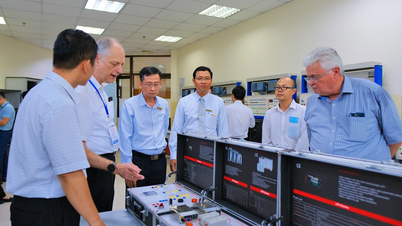
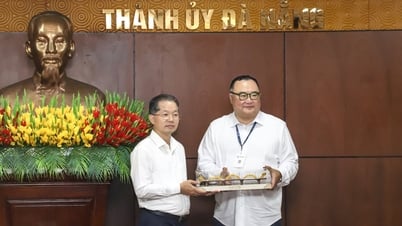

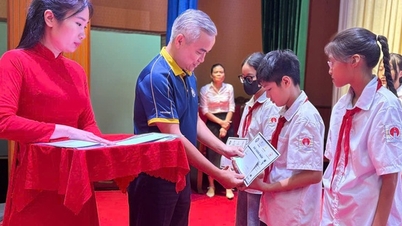

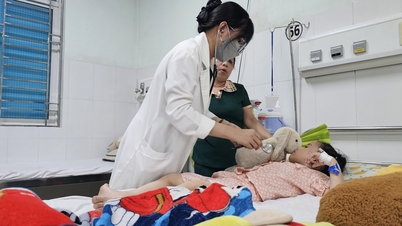










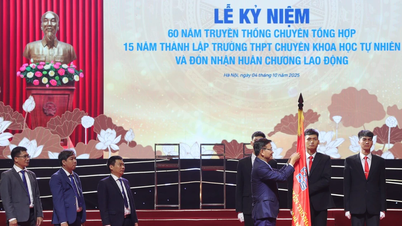


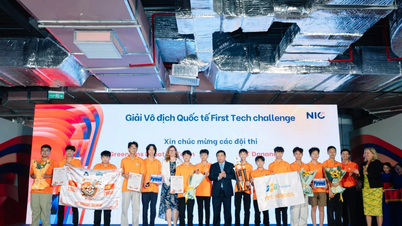


























![[VIDEO] Summary of Petrovietnam's 50th Anniversary Ceremony](https://vphoto.vietnam.vn/thumb/402x226/vietnam/resource/IMAGE/2025/10/4/abe133bdb8114793a16d4fe3e5bd0f12)

![[VIDEO] GENERAL SECRETARY TO LAM AWARDS PETROVIETNAM 8 GOLDEN WORDS: "PIONEER - EXCELLENT - SUSTAINABLE - GLOBAL"](https://vphoto.vietnam.vn/thumb/402x226/vietnam/resource/IMAGE/2025/7/23/c2fdb48863e846cfa9fb8e6ea9cf44e7)



















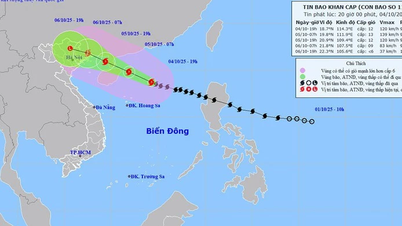













Comment (0)